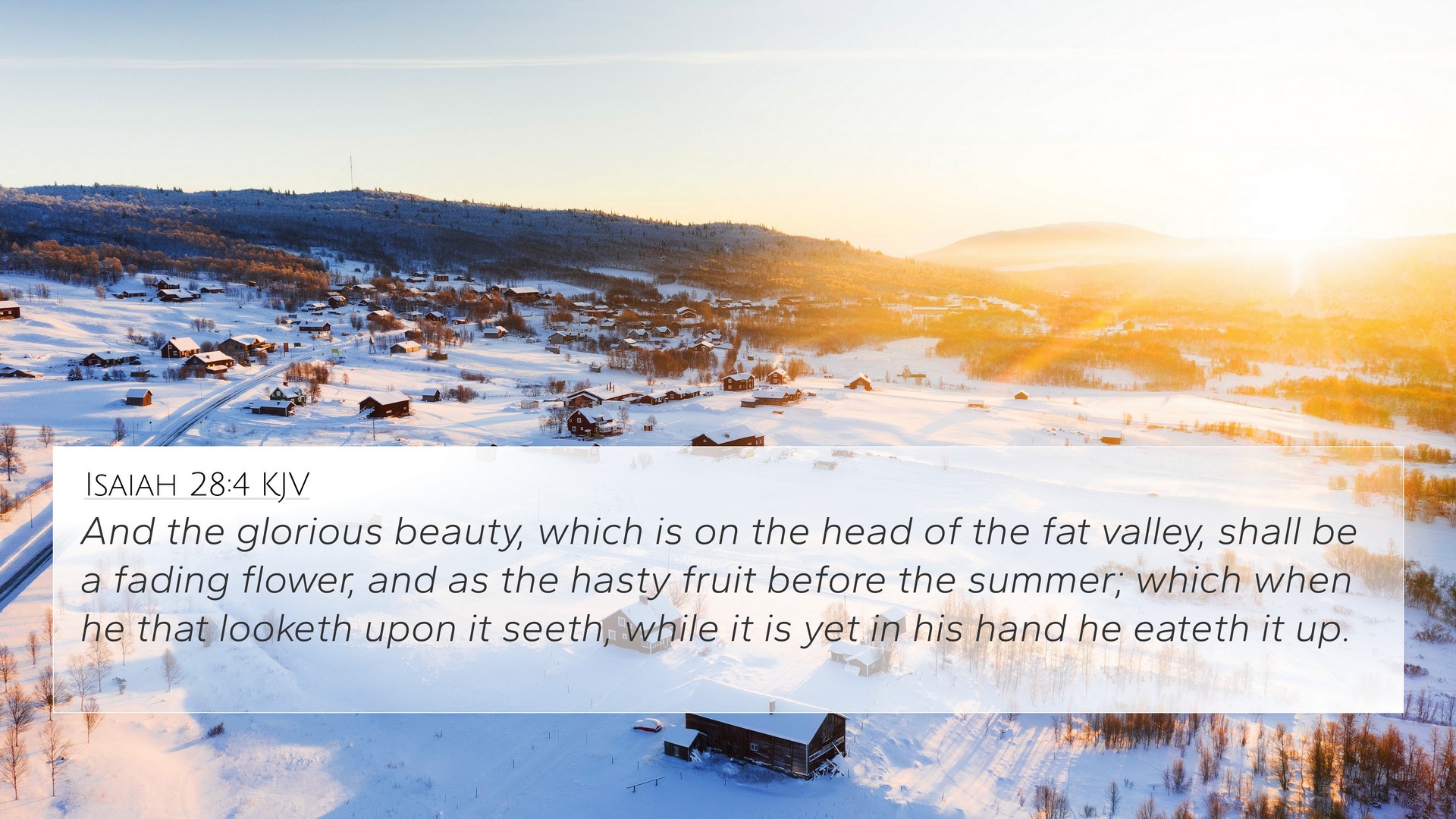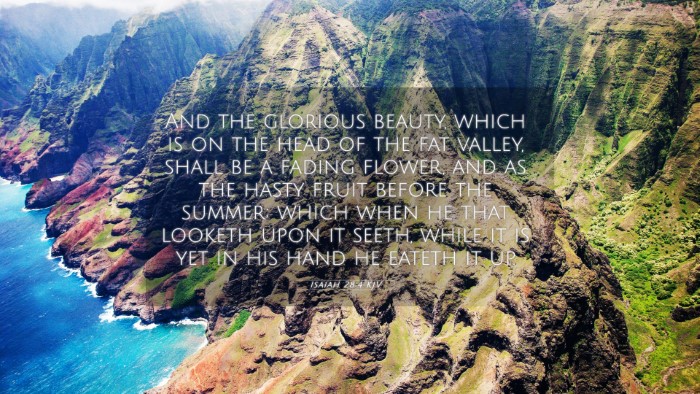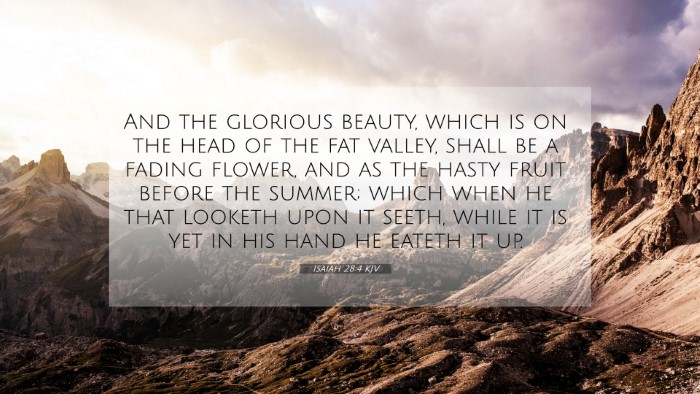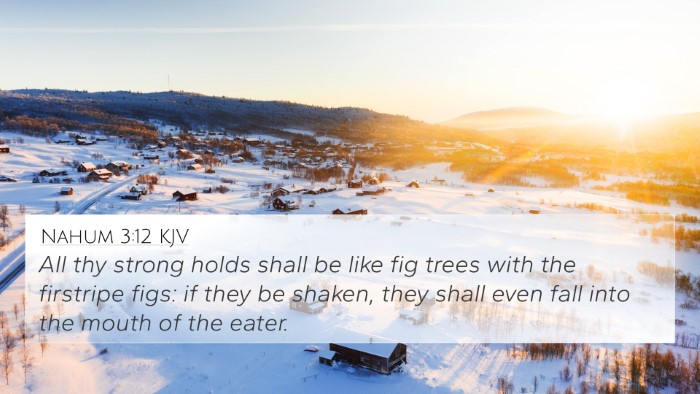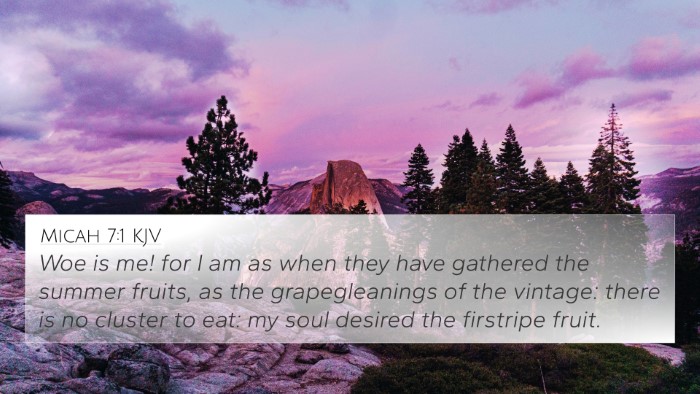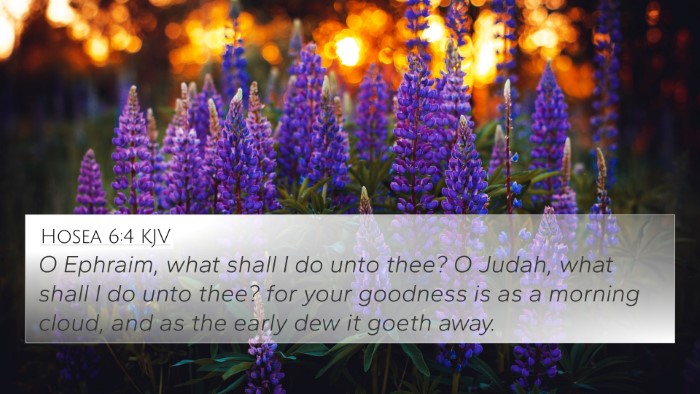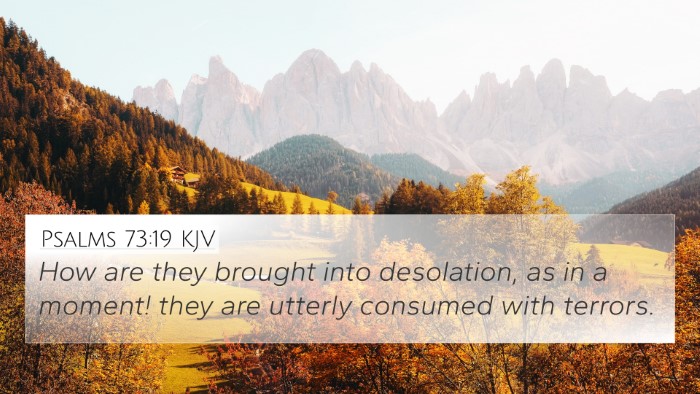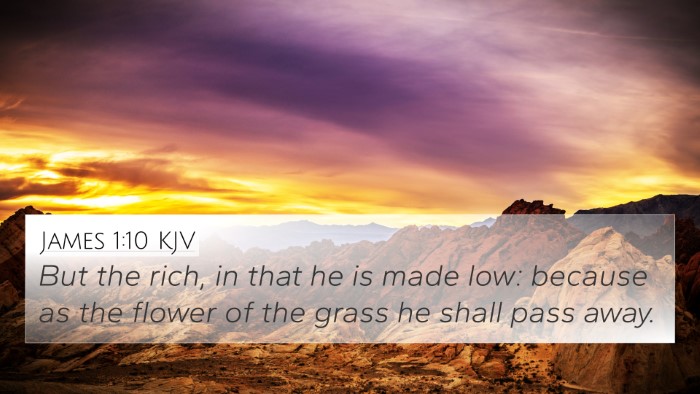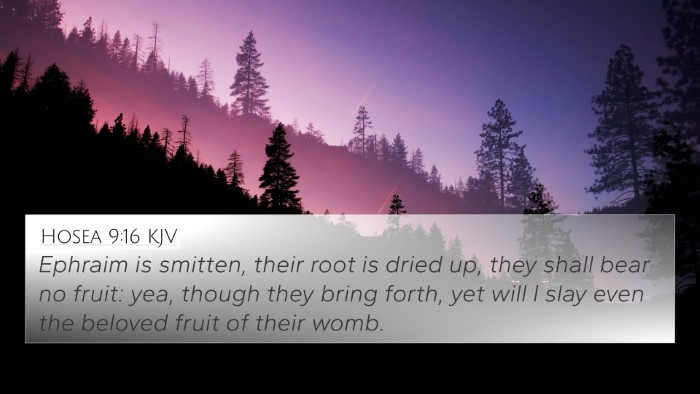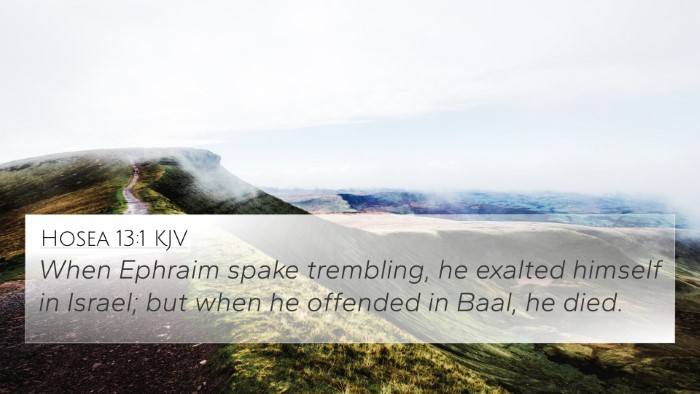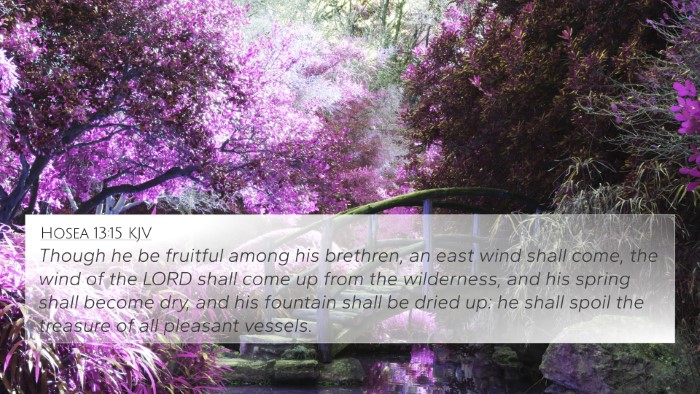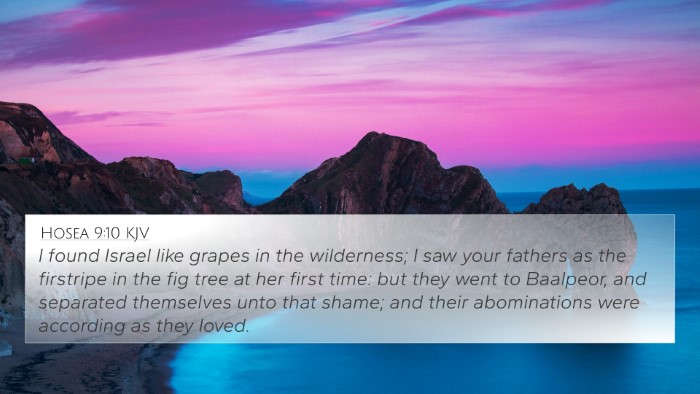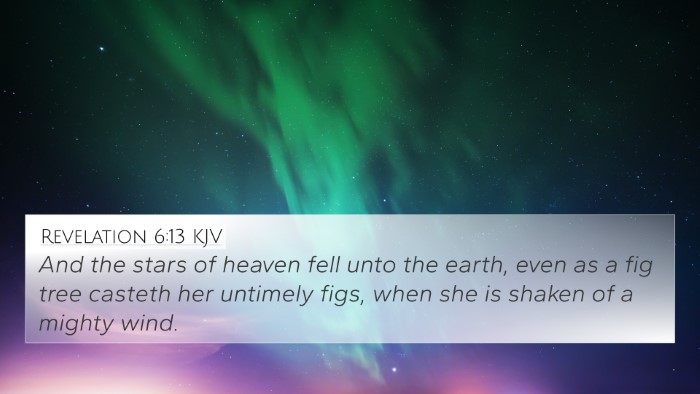Understanding Isaiah 28:4
Isaiah 28:4 reads: "And the glorious beauty, which is on the head of the fat valley, shall be a fading flower, and as the hasty fruit before the summer; which when he that looketh upon it seeth, the promises in his hand of the harvest; but shall be taken away." This verse reflects the transient nature of earthly glory and beauty, emphasizing the definitive impermanence of worldly riches and status.
Overview of the Interpretation
The verse illustrates a vivid imagery that conveys the theme of transience, contrasting spiritual beauty with materialistic pride. Scholars have often elucidated this passage through various lenses. Here, we summarize insights from esteemed public domain commentaries including those of Matthew Henry, Albert Barnes, and Adam Clarke.
Commentary Insights
Matthew Henry
Matthew Henry emphasizes the fleeting nature of human achievement and beauty. He notes that just as a flower fades quickly, so too does pride and glory from earthly pursuits. His commentary connects this theme back to the broader promise of God, revealing that reliance on material splendor can lead to desolation.
Albert Barnes
Albert Barnes expounds on the metaphor of the 'fading flower', expertly linking it to the impending judgment of Israel. He conveys that God's judgment is inevitable, suggesting that what seems to be flourishing will ultimately wither. Barnes underscores the urgency for repentance among the people and highlights the temporary nature of visible glory.
Adam Clarke
Adam Clarke provides a thorough exegetical approach, commenting on the socio-political context of the time. He argues that the 'glorious beauty' referred to may symbolize the elite and their prosperity, soon to be humbled by divine intervention. Clarke's insights remind readers to value spiritual integrity above vanity.
Connecting Related Bible Verses
To aid in understanding Isaiah 28:4, we can reference several related scriptures, as follows:
- James 1:10-11 - "But the rich in that he is made low: because as the flower of the grass he shall pass away."
- 1 Peter 1:24 - "For all flesh is as grass, and all the glory of man as the flower of grass. The grass withereth, and the flower thereof falleth away."
- Matthew 6:19-20 - "Lay not up for yourselves treasures upon earth, where moth and rust doth corrupt, and where thieves break through and steal."
- Proverbs 31:30 - "Favour is deceitful, and beauty is vain: but a woman that feareth the Lord, she shall be praised."
- Isaiah 40:6-8 - "The voice said, Cry. And he said, What shall I cry? All flesh is grass, and all the goodliness thereof is as the flower of the field."
- Matthew 23:12 - "And whosoever shall exalt himself shall be abased; and he that shall humble himself shall be exalted."
- 2 Corinthians 4:18 - "While we look not at the things which are seen, but at the things which are not seen: for the things which are seen are temporal; but the things which are not seen are eternal."
Thematic Connections and Cross-Referencing
The theme of transience appears repeatedly throughout the Bible, inviting a comparative analysis of verses on similar subjects. By engaging in cross-referencing Bible studies, the following categories and themes become evident:
- Transitory Earthly Beauty
- Divine Judgment
- Spiritual vs. Material Wealth
- Values of the Kingdom of God
- The Fleeting Nature of Life
- Humility and Submission to God
- Eternal vs. Temporal Focus
Tools for Bible Cross-Referencing
For those interested in deeper study, utilizing tools for Bible cross-referencing can enhance understanding. Recommended tools include a Bible concordance, a cross-reference Bible study guide, or comprehensive Bible reference resources. These can aid in identifying connections between verses, especially in the Old and New Testaments.
How to Effectively Use Cross-References
Engaging with Bible cross-references effectively involves:
- Identifying Themes - Determine the primary focus of the verse and look for similar themes in other scriptures.
- Contextual Analysis - Consider the context of each verse to understand its relevance to the theme.
- Comparative Studies - Analyze how different passages relate to each other, pinpointing similarities and differences.
- Structured Study - Organize verses according to themes or connections in a systematic manner.
Conclusion
In reflecting on Isaiah 28:4 through cross-referencing with other verses, one gains a comprehensive understanding of the nature of earthly beauty and the importance of focusing on spiritual values. The insights from established commentaries provide depth, while the exploration of related scriptures reveals a rich tapestry of biblical themes. This ensures that the transient nature of life is examined not only through Isaiah’s words but also through the broader narrative of Scripture.
